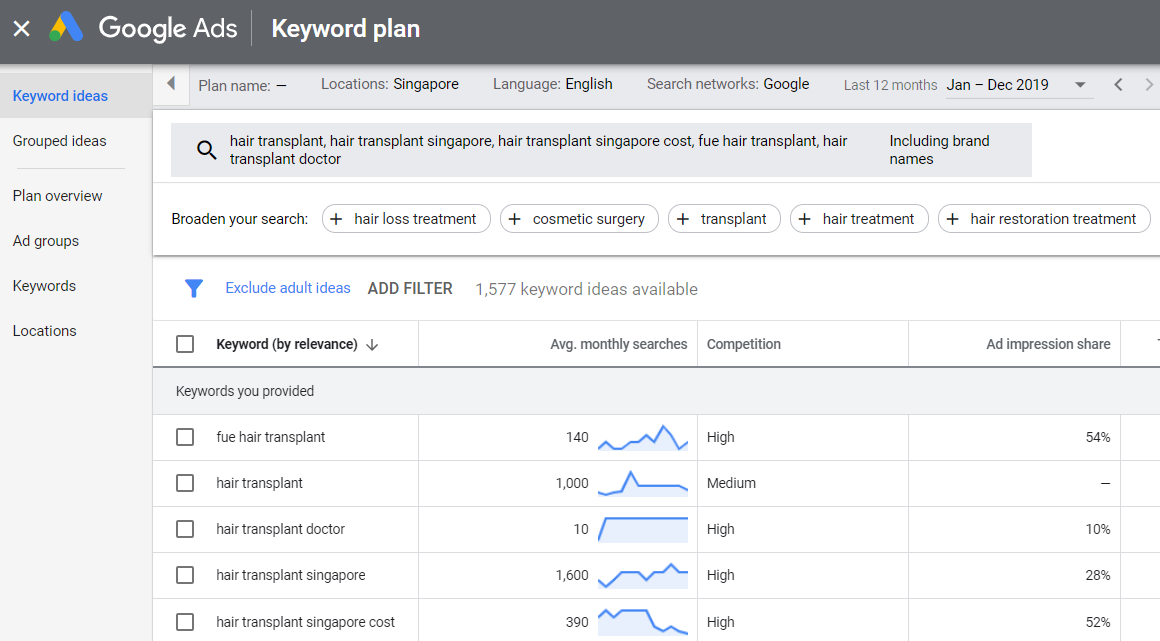Effective SEO Tips: How To Improve Your Site's Google Ranking

Search Engine Optimization (SEO) is one of the most important factors that affects your website’s Google Ranking. Even if you have created an impressive and beautifully constructed website, you won’t get far if your SEO is deficient.
Improving the sitemaps, alt tags, schema, and keywords are some of the factors that can help boost your ranking. The field of SEO is constantly changing, and digital marketers should be aware of the trends and algorithms to improve one’s website pages. While some tried-and-true methods might still work today, the Google algorithm can change dramatically. In this article, we will share some helpful tips for ensuring that your website has a place among the upper ranks of Google’s search results.
Content:
- Select a group of related search terms to focus on for optimization
- Select good placement for your keywords
- Make the best and relevant content
- Work on your page titles
- Update Alt-Tags
- Take care of your internal linking
- Watch your external linking, too
- Create a mobile-friendly site
- Create a searchable URL structure
- Track your progress
1. Select a group of related search terms to focus on for optimization
First, you must select a group of related search terms that encapsulates, or effectively represents what your website is all about. Use only the most appropriate terms or phrases that describe your website’s content. For example, your website is all about shoes. What exact keywords do people use to search for shoes on the internet? Is it the brand? Is it the kinds of shoes that women wear?
In this keyword optimization process, you may use the Google Keyword Planner. It can show you a volume of search phrases and give you an idea of how those keywords will perform. You can also see some suggested keywords that you can use for optimization. The good thing about this keyword planner is, it is free! (You may need to create a Google Ads account to access it.)
Note, however, that keywords aren’t the be-all, end-all of SEO. Understanding search intent, or what search engine users want or intend to achieve when they perform a search, is one of today’s SEO best practices. Search intent may be derived from a closer look at keywords, or more specifically, search terms (or the words users use to search).

If, for example, a person uses “hair transplant” in a search, he may be “only” looking for information about transplants. But if a person uses “hair transplant doctor in singapore”, then he may well be at the stage where he’s actually looking for somebody who can perform the procedure.
But even with the current, increasing emphasis on search intent, it must likewise be noted that keyword research remains paramount. Search Engine Roundtable quotes a Google representative saying that keywords still make it a little bit easier for search engines to understand what your pages are about.
2. Select good placement for your keywords
The right positioning of the keywords on your website pages is one of the most important strategies of SEO. Here are some of the tactics that you can use for the keywords optimization of your site:- Place the keywords on the Title Page. (Make sure that you are also creating an interesting title page.)
- Place the keywords on the Header. (They can help Google recognize what your post or website is about. Make sure to put exact keyword phrases into it.)
- Make sure to place the keywords in the URL and in the posts. (They will also help Google to recognize your posts.)
Another thing is that you must not do this “keyword-stuffing” thing. This is when you add a huge amount of keywords that may not be related to your content. This can cause your site to be flagged as spam.
3. Make the best and relevant content
Quality Content is one of the main methods of boosting a website’s traffic. This also contributes to a site’s authority and relevance. Great content will be the ace up your website’s sleeve! Think of which keywords you can use in phrases and repeat them throughout the content. Do not forget to highlight the keyword phrases. (Just don’t overdo it!) Make sure to use bold, italics, and heading tags. Always aim to have the best written piece for your website users. Also, make sure to update your content regularly.
4. Work on your page titles
Make sure to come up with a compelling page title. It should also be short and relevant to your content and the keywords that you are targeting because the title page is displayed in the search engine results. Make your Title Pages interesting and catchy! Also create a strong call-to-action to encourage users to visit your page.
5. Update Alt-Tags
The alt tag (also known as the alternative text description) is the text that will be shown on the browser if a photo cannot load. It is to be updated after you upload a photo on the page. Alt tags help search engines to locate your page if proper keywords were set correctly. They help the site to become more searchable.
6. Take care of your internal linking
An internal link is a hyperlink to another page or resource on the same website. It is essential that your content contains internal links to other pages in your website. Linking internally also encourages your website users to check out more of your site.
7. Watch your external linking, too
An external link is when another website is highlights links leading directly to your site and vice versa. Google trusts external links that are created outside of your website. You may want to read Backlinko for some link building tips. You should monitor how those links are working.
8. Create a mobile-friendly site
We know for a fact that this generation relies on their mobile phones, tablets, and gadgets. This is one factor that can increase your site’s traffic. Google promotes better user experiences for everybody. So, if your site is accessible by mobile devices, the better you will rank on Google.
9. Create a searchable URL structure
The URL is commonly known as the “web address”. It points to the specific location of a web page. It is the first thing that the search engine crawls to determine page rank. Keep your URL concise, as it also improves the user experience. It should be relevant to your page’s keywords, topics, and content. It also helps to categorize and organize the site pages.
10. Track your progress
Make sure to check and monitor everything that you’ve done for your website. You may track the keyword ranking and see if your keywords are doing well on the search engine. You can use tools such as Rank Tracker, cognitiveSEO, or Alexa to check your keyword rankings regularly. You must also check your referrer log to see the number of visitors viewing your site and what search terms they used to get there.
Follow these tips and enjoy SEO-ing
Doing Search Engine Optimization is hard work. There are a lot of checklists to go through and insights to consider. You may burn yourselves out along the way, but you must be consistent in your aim to stay on top of your game. Persevere, and you will get a significant boost of SEO traffic before you know it.
Looking for SEO experts to expand your customer base? Call NEO360—we can grow your business to help you achieve greater ROI through SEO & PPC Campaigns. Get in touch with us to know more about our services today.
Let’s talk about your marketing performance!
About the Author
Managing Director
A Mechanical Engineer by training who graduated from the Nanyang Technological University. With over 15 years of experience working in Start-Ups, SMEs and MNCs, he has driven sales revenue and leads across the Asia Pacific region. Shei Wah was one of the SEO Speakers at the first Search Engine Strategies Conference 2011 held in Singapore. As Managing Director, he aims to establish NEO360 in all of the world’s major cities. Even as he works toward this goal, Shei Wah also dreams of his children’s future happiness, and unwinds by doing calisthenics with his former school buddies three times a week.





